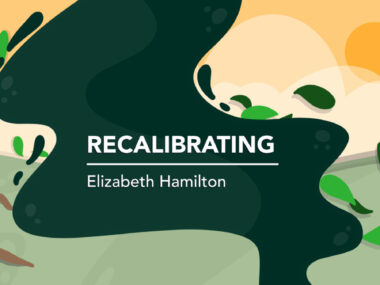I’ve Gone Through the Five Stages of Grief as an FA Parent
Written by |

According to authors Elisabeth Kübler-Ross and David Kessler, people go through five stages of grief after losing a loved one or experiencing a catastrophic life event. The stages are denial, anger, bargaining, depression, and acceptance.
When our daughter was diagnosed with Friedreich’s ataxia (FA), I began a grieving process. I talked with another FA mom who told me that almost 10 years after her daughter’s diagnosis, she is still grieving every day.
Nearly 18 months after diagnosis, I am beginning to see that life goes on despite the daily grief that comes in waves. I now understand what that mom meant. Some days, I can experience every stage of grief; on others, I’m stuck on one. But the grief never leaves.
For me, denial usually comes in the form of a Netflix binge or audiobook. Focusing on something mindless often keeps me from going out of my mind. If I’m caught up in some fictional drama, I can pretend for a while that we have normal lives and everything is fine. Denial is a vacation from reality.
My daughter was in denial last night when she tried to pick up our dog, lost her balance and fell into a bookshelf, breaking a plate that crashed to the ground. That incident immediately sent her into the second stage of grief: anger. Anger is probably the stage she inhabits most often, and at 14 years old, she can become stuck in her rage. She gets mad when she attempts something she believes she should be able to accomplish, but her body won’t cooperate.
I feel angry when I see other parents and teenagers living “normal” lives, oblivious to the pain and hardships we are going through. And while I know my anger is irrational and bitter, some days I can’t help it. I am furious that I can run, jump, and play sports while my daughter feels tethered to the ground, unable to stand for extended periods. I recall a scene from the movie “Steel Magnolias” when Sally Field’s character exclaims, “I’m fine! I can jog all the way to Texas and back, but my daughter can’t! She never could!” I understand that rage.
I think that bargaining looks like action. It’s the stage I’m at when I look for an alternative path. Bargaining is research into vitamins and essential oils that might help with FA symptoms. Or when I hire a personal trainer for my daughter, or make her drink celery juice. Or try to persuade her to give up gluten or attend yoga classes. In other words, bargaining is when I try to take control of my daughter’s health and end up fighting with her.
Sometimes, I become mired in depression. I have days when I want to crawl back into bed when my kids are at school. I don’t answer phone calls or reply to text messages. I refuse to listen to any good news or find joy in anything. Depression can feel as if any effort is too much and it’s easier to give in to lethargy.
I hadn’t thought that I would make it to the final stage of grief: acceptance. But, to my surprise, I have arrived there. It doesn’t mean that I’m resigned to the belief that our life is over because our daughter has Friedreich’s ataxia. To me, acceptance means hope for a cure. We want to make our daughter’s life as fulfilling as possible, knowing that our situation is temporary and that someday a treatment and cure for this disease will exist. Acceptance is action and moving forward with expectation and courage.
I am incredibly grateful to a community that supports and encourages us as we travel along this path each day. And I’m thankful for our friends and family who grieve and fight with us as we hope and work toward a cure.
***
Friedreich’s Ataxia News is strictly a news and information website about the disease. It does not provide medical advice, diagnosis, or treatment. This content is not intended to be a substitute for professional medical advice, diagnosis, or treatment. Always seek the advice of your physician or another qualified health provider with any questions you may have regarding a medical condition. Never disregard professional medical advice or delay in seeking it because of something you have read on this website.



Rachael Walters
My daughter wanted me to read this, so I did for the first time ever I feel understood in a sense, but to have someone who is experiencing the same feelings it’s almost like their reading my mind, I haven’t reached all 5 steps, I still haven’t found my way out of the second step, but at least I know I’m not alone.
Courtney Kuykendall
Sweet Lauryn - thank you for sharing your journey and burden in your words. Love you so.